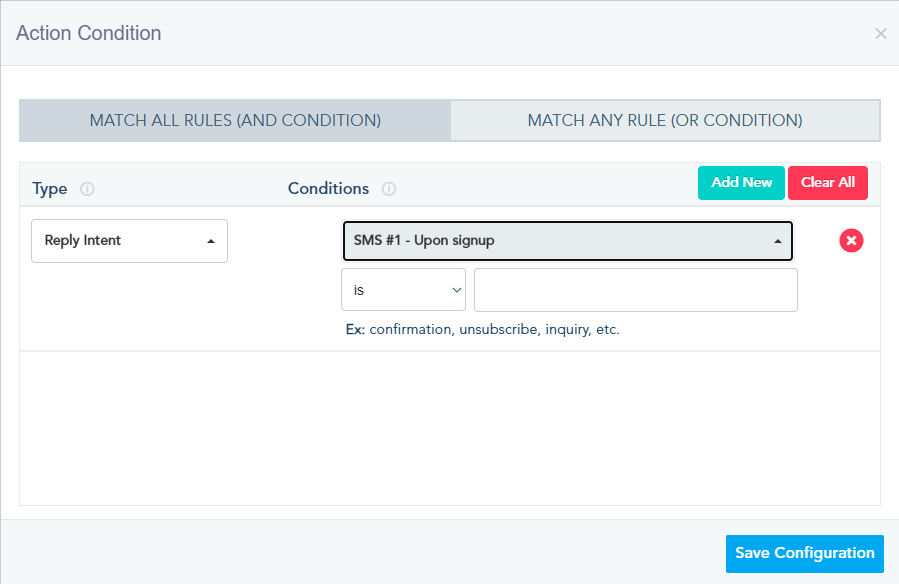Reply intent feature helps categorize SMS replies based on specific intents. It allows businesses to understand the sentiment or intent behind customer responses,
A reply intent could categorize responses as inquiries, complaints, or confirmations, allowing automated workflows to trigger based on these categories.
You can use it as a condition in your automation workflow to target contacts with/without specific reply intent.
Reply intent keywords are typically grouped into various categories depending on the purpose of the conversation or the industry in which they’re applied. Here are some common categories of reply intent keywords:
1- Confirmation: Confirming receipt, acknowledgment, or agreement.
Example: “Received, thank you!”
2- Information Request: Seeking more details or clarification.
Example: “Can you please provide more information?”
3- Scheduling: Requesting or confirming a specific date, time, or appointment.
Example: “Let’s schedule the meeting for tomorrow at 2 PM.”
4-Status Update: Providing an update on a process, request, or task.
Example: “The package has been shipped and will arrive tomorrow.”
5- Cancellation/Rescheduling: Requesting to cancel or reschedule an appointment or event.
Example: “I need to cancel our meeting. Can we reschedule for next week?”
6- Customer Support: Seeking assistance or support with a product or service.
Example: “I’m having trouble accessing my account. Can you help?”
7- Feedback: Providing feedback or comments.
Example: “I wanted to give positive feedback about the excellent service I received.”
8- Opt-In/Opt-Out: Requesting to subscribe or unsubscribe from a service or communication.
Example: “Please opt me out of future promotional messages.”
9- Payment: Initiating or confirming a payment or transaction.
Example: “I would like to make a payment for my invoice.”
10- Gratitude: Expressing thanks or appreciation.
Example: “Thank you for your quick response!

